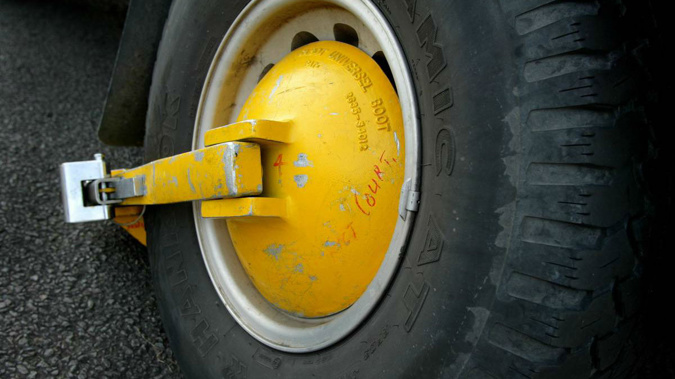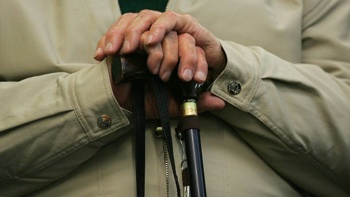
The Government's move to cap wheel clamping fines at $100 was based on anecdotal evidence, media reports, and a lack of overall evidence about the scale of the problem, according to the Ministry of Business, Innovation and Employment (MBIE).
And MBIE was "not satisfied" that there is enough of a problem to warrant Government intervention.
"While there is anecdotal evidence of problems with wheel clamping, we are not satisfied that there is a convincing case for a particular change at this point in time," the MBIE regulatory impact statement said.
The Government announced its intention to bring in the $100 cap in August last year, and legislation to introduce the cap is expected to have its first reading in Parliament this week.
MBIE recommended a $50 cap, but the Government decided to increase this after concerns that a low cap could put some wheel clamp operators out of business.
A low cap was also seen as an ineffective deterrent that could see business carparks occupied by people other than legitimate customers.
The MBIE statement said it was based on anecdotal evidence, including media reports, and meant that MBIE was unable to assess the scale of the problem.
But it noted several issues in the industry. Unclear regulation had led to unreasonable fees, intimidating and unfair behaviour by wheel clamp operators, and a lack of opportunity for appeal before paying the release fee.
"There is nothing in the law that prohibits, for example, the clamping of vehicles thirty seconds after the motorist has vacated.
It noted one instance where someone paid $760 after parking for half an hour, and another of a $480 payment to release a clamp after parking for five minutes.
"We have also seen complaints whereby the initial charges for releasing a clamped vehicle were raised after the affected motorists attempted to negotiate or dispute the fee at the time," the statement said.
"Common complaints that appear in the media include that wheel clampers lie in wait to clamp vehicles not long after the motorist has vacated the vehicle, that vehicles are clamped with passengers inside, that unauthorised persons have clamped vehicles, and that motorists are subjected to threats and intimidation."
A voluntary industry code was brought in in 2015 but had been ineffective, the statement said.
"The code does not provide guidelines for setting parking enforcement fees, which we understand are a major source of complaint."
MBIE noted that if the cap was set too low, it could force some operators out of business. It could also create an incentive to clamp more motorists to make up for lower fees.
"We acknowledge however that because of the limited evidence we hold, we cannot be certain of the impact that a $50 maximum will have.
"We do not have sufficient evidence to assess whether the decreased return will cause more operators to exit the market or alternatively to increase the amount of clamping they undertake."
MBIE considered other options, including banning wheel-clamping altogether, but rejected this without more evidence of a widespread problem.
Take your Radio, Podcasts and Music with you









